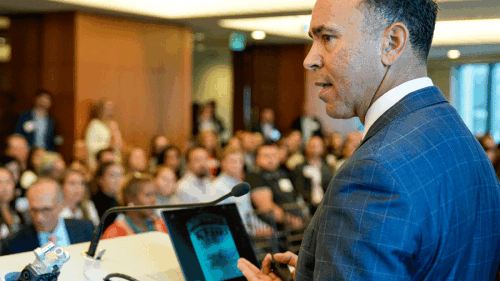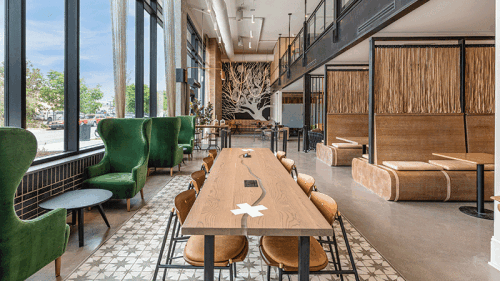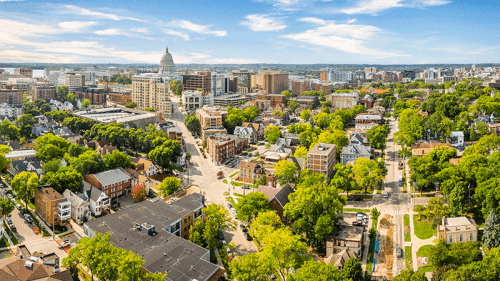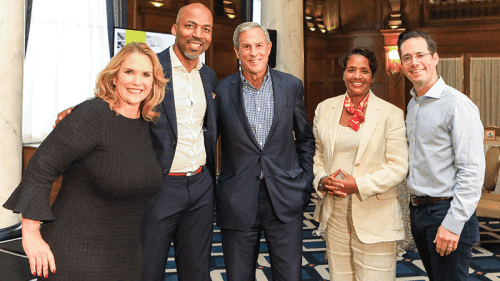When it comes to examining excellence in real estate with an eye on equity, there are many variables to consider, according to Marilynn Davis, a senior adviser at HR&A Advisors. For most, housing is what first comes to mind.
“When we look at excellence nowadays, there are a lot of kudos given to affordable housing,” said Davis while moderating the panel, “Redefining Excellence in Real Estate with Equity at the Core,” at the 2022 ULI Spring Meeting in San Diego.
However, Davis argues there should be a focus on more than simply affordable housing. While she conceded that it is critical to every major city nationwide from San Diego to San Francisco to New York, Atlanta, and even Boise, Idaho, Davis has other concerns.
“I am fearful of the possibility that developers will build a number of affordable housing units and say, ‘That’s it. That’s excellence. I solved the problem,’” said Davis. “Of course, most of us know that while housing is a necessary condition for equity and the long-term success of cities, it is certainly not sufficient.”
Affordable Housing ‘Prison’
Carlton Brown, CEO and partner at Direct Invest Development, has worked in affordable housing for years. However, he recently came to the conclusion that “it was kind of pointless” the way in which affordable housing is done, he said.
“Because the notion was what we we’ll do is we’ll concentrate poverty in the most extreme location, away from jobs, away from transportation,” said Brown. “Building affordable housing itself is kind of like building prisons and thinking you’re going to solve crime.”
He said affordable housing is only one problem. People live not in housing but in communities, and “we have broken communities,” said Brown. Successfully addressing the issue will require a different approach.
“When you think [about] the way government works and the way finance works, it works in silos, so the people that are looking at housing, don’t look at culture,” said Brown. “They don’t look at opportunity structures. They don’t look at schools. So if you’re going to make interventions, you need to start thinking about how can you do things that do more than provide shelter? How do you do things that do more than just concentrate [on] one economic group or racial group or class group in a small community that’s under resourced?”
Building Healthy Communities
The Daniels Corporation, a Canadian-based developer, has built more affordable housing than any other private company in Canada, according to panelist Heela Omarkhail, the firm’s vice president of social impact. However, she said this has been done as a result of the company’s desire to do it and not as a result of land-use approvals. Yet her firm also recognizes affordable housing must go hand in hand with a social infrastructure.
“We’ve learned over 37 years, building buildings can often be the easy part,” she said. “How do we actually build healthy communities? We’ve identified a number of what we started to call ‘organizing elements,’ sort of tools in our toolkit. One of those is local economic development. So, how do we actually identify parts of the real estate development and construction process for employment, for training, for local and diverse procurement, and do that with intention at the outset of the development?”
The Daniels Corporation also focuses on “embedding” arts and culture opportunities as well as incorporating sports and wellness. The firm’s interior designers are instructed to no longer purchase art from large galleries or art depots for their projects.
Instead, the developer sources art from local artists in the neighborhoods where it builds. The priority is on finding artists from “equity-deserving groups,” according to Omarkhail. She added that the arts as well as food and urban agriculture are “powerful conveners” that can transcend socioeconomic background, culture, and different languages.
“So, how do we create both the physical spaces for sports, arts, and culture, food and urban agriculture and then invest in the programming as well and use that as a tool not just for equity but inclusion, accessibility, community resilience, and then sustainability?” asked Omarkhail. “Things like food and urban agriculture actually extend to our sustainability missions in addition to equity.”
Omarkhail’s company is also addressing equity issues by making some work/live units in the community of Regent Park available at 50 percent of market rent so that artists can stay in the neighborhood. The Daniels Corporation has also partnered with The BlackNorth Initiative to make units specifically available to Black artists and artists groups, she said.
Panelist Benedict Tranel, a principal at Gensler based in San Francisco, said he has also worked with clients who are open to ways to engage local communities. As an architect, the focus is most often on simply designing the building without considering other factors “beyond the strict site boundary,” she said.
“We’re thinking now at Gensler among some of our teams—and I know others are doing this, too—thinking about the context of the project, not just as the site or the environmental factors but also the community,” said Tranel. “There’s a community there already. What needs do they have that the project could address or serve and folding that into the design and hearing those community voices because I think an important part about design is whose voices are being heard and whose voices are not heard in the process.”
Members can access sessions like this on demand on ULI’s Knowledge Finder.
KAREN JORDAN is an Los Angeles-based business writer.





